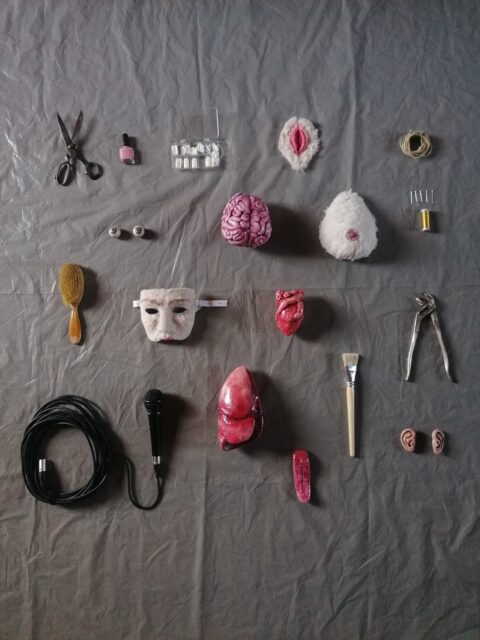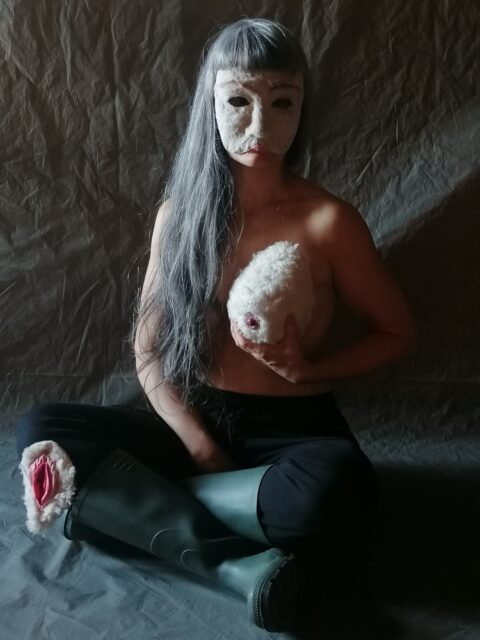“Kokoschka” is inspired by the story of passion and obsession that the artist Oskar Kokoschka had with the composer Alma Mahler, a relationship that went to the extreme limit of madness. We talk about it with the creators of the show, Ledwina Costantini (also performer) and Daniele Bernardi, of Opera retablO.
The starting point of the performance is the relationship between the artist Oskar Kokoschka and the composer and writer Alma Mahler. What is their story?
Kokoschka (Pöchlarn, 1886 – Montreux, 1980) had trained between 1905 and 1909 at the Realschule in Vienna, under the guidance of von Kenner, Czeschka and Löffler. He had then been influenced by the personality of Gustav Klimt, thanks to whom he had been presented to the public for the first time during the Kunstshau of 1908, earning himself the appellation ‘savage’ by the critics. In 1912 he met Alma Mahler (Vienna, 1879 – New York, 1964), the widow of the great composer Gustav Mahler, who came from a prominent family where art was highly regarded and cultivated. Seduced by her beauty, Kokoschka fell madly in love, developing a passionate and possessive feeling for her. The two then lived a tormented relationship, hinging on the demands of the artist’s narcissistic personality until Alma, exasperated, decided to leave. The acts following the break-up of the relationship were astonishing, grotesque and over the top.
How did this couple inspire the show?
Our play is not the chronicle of their relationship. We could have taken this route, but we soon realised that we were not interested in a museum-performance perspective. What we wanted instead was to use elements of these events by taking them out of their context and projecting them into a broader dimension. That dimension is, quite simply, that of the inherent violence of the most important of human feelings: love.
You will be on stage together with some objects. Who are you playing? What do the objects represent?
I cannot answer this question, because it would reveal the nature of the performance. But I can say that mine will not exactly be the interpretation of a character, but rather a performance of a series of symbolic activities, inspired by the relationship between Kokoschka and Alma Mahler.
In what sense do loving and violent feelings interpenetrate? Why can love lead to madness?
It is by no means easy to answer, as the subject is multifaceted, vast and elusive. First of all, it is good to say, even if it may seem banal, that there is a substantial difference between falling in love and love: the former, falling in love, is a reflexive feeling, not aimed directly at the other but at oneself through the other; the latter, on the other hand, is the most human and indefinite feeling that exists. It is the highest feeling that involves accepting the loved one for what he or she is and not for what he or she represents. That said, both of these feelings have a violent aspect, because when they hit us they “move” us from our centre. Falling in love causes restlessness to snake through our lives through the other’s desire; love pushes us to expose ourselves, to transform ourselves and to do things that, without the other, we would not be willing to do. Perhaps this is why love can drive us to madness, because by being “invaded” by the ghost of the other, it is as if we could potentially lose ourselves.
In the painting “The Bride of the Wind” Kokoschka depicts his relationship with Alma shortly before its end (the painting can be viewed at the Kunstmuseum Basel). What happens when a whirlwind passion ends?
I don’t think it is the same for everyone, it depends on the individual and the personal resources of each person. What is certain is that passion, in general, comes to an end and alone is not enough to build a love, which is what is worth fighting for.
“Kokoschka” is at the Teatro Foce from 09 to 11.02.
More information: foce.ch


